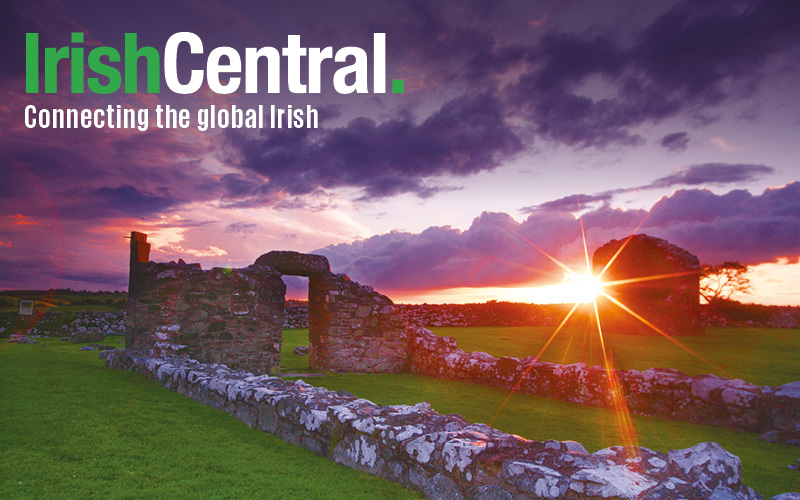The Ireland I grew up in had no divorce, no contraception, no abortion, no marriage equality. Being gay was a literal crime. Having a child outside of marriage could see you banished to a religiously run gulag somewhere down the country. Your child could be taken from you and forcibly adopted whilst were forced to work hard for no wages, for as long as the order that detained you decided. Ireland has truly changed,
Irish plays are filled with stories of exile and return, so are our Irish mythologies. Think of Tir na nOg, the mystical land of everlasting youth, and the young heroes Oisin and Niamh.
When the mortal man Oisin falls for the otherworldly Niamh he travels with her to her magical homeland and three happy years pass, whereupon he starts to feel homesick for Ireland again.
Niamh tells him he is welcome to take her horse and travel over the sea to his homeland on one condition, that he must never touch the ground. But on return to Ireland Oisin discovers that it's not three years that have passed, it's three hundred, and all of his friends are centuries dead.
Read more
This story comments on something universal and yet deeply personal and that's why it has endured. The closest you will ever come to time travel is to leave a place you love and come back years hence. The experience will be a bit like looking at a double negative photo, where you try to fit what you remember over what it actually looks like now.
When you grow up in a particular community or culture you can rarely see its nature or its limitations until it either rejects you or you get up and leave (or both).
It doesn't matter so much where in the world this happens because the process is often the same. Physical distance from your homeland begins to give you some necessary perspective on it, just as the experience of social alienation will often sharpen your observations too.
Either way, you will find yourself turning from a participant into an observer and when you do you will feel the transition happen. It's a tale as old as time.
Irish emigrants often speak of the old country with a wry detachment, the longer their exile goes on. They still understand all the private codes and attitudes with a native's fluency, but they start to bring something new to the exchange through distance and time.
Despite their best efforts they will start to see their home through the eyes of a stranger, and the process is either illuminating or unsettling depending on what they find.
I have returned to Ireland to find the currency has changed or the phone boxes have vanished, or the streets have been repaved and the houses knocked down and rebuilt. Roads that once were sleepy have electric buses and modern trams running through them, once derelict buildings have become five-star hotels, even the fashions have changed and the prices have exploded.
No one tells you how to navigate what you once knew and what it has become now. No one tells you how disorientating it can be to return to the little town you grew up in and not recognize a single face on the market street at midday.
All of these imperceptible little thefts can steal up on you when you return to the town you knew like the back of your own hand only to discover that it completely rearranged itself in your absence and that although you could find your way through its streets with your eyes shut it is no longer the place you once knew, and these are not the faces you grew up around, because the play has been recast and you don't have a walk-on part now.
In the old myth, Oisin can't help himself and he finally touches the Irish soil, despite Niamh's dire warnings. By breaking the spell time instantly catches up with him and he ages and withers and expires on the spot. But that's a just poetic way of exploring what can happen to a real person in real life.
The Ireland I grew up in had no divorce, no contraception, no abortion, no marriage equality. Being gay was a literal crime. Having a child outside of marriage could see you banished to a religiously run gulag somewhere down the country where your child could be taken from you and forcibly adopted whilst were forced to work hard for no wages, and for as long as the order that detained you decided.
Read more
The experience of once pulling a short straw in that now-vanished community and culture allowed me to see its true nature with a clarity I might otherwise have missed. Being gay placed me outside of its care and consideration. I was metaphorically left out on the hillside, where so many like me would found themselves, but the unexpected benefit was that I had a clearer view of the place.
But now whenever I return it's like the story of Oisin and Tir na nOg in reverse. It's not me who vanishes, it's the narrow and dangerous society that once literally sent me packing.
I have rights in Ireland now, I can take my place proudly among my compatriots, and I can finally do the thing that previous generations of us could not, I can share what I have learned and learn from the experience of others like me. The country is growing up at last, and along with it so are we all.




Comments